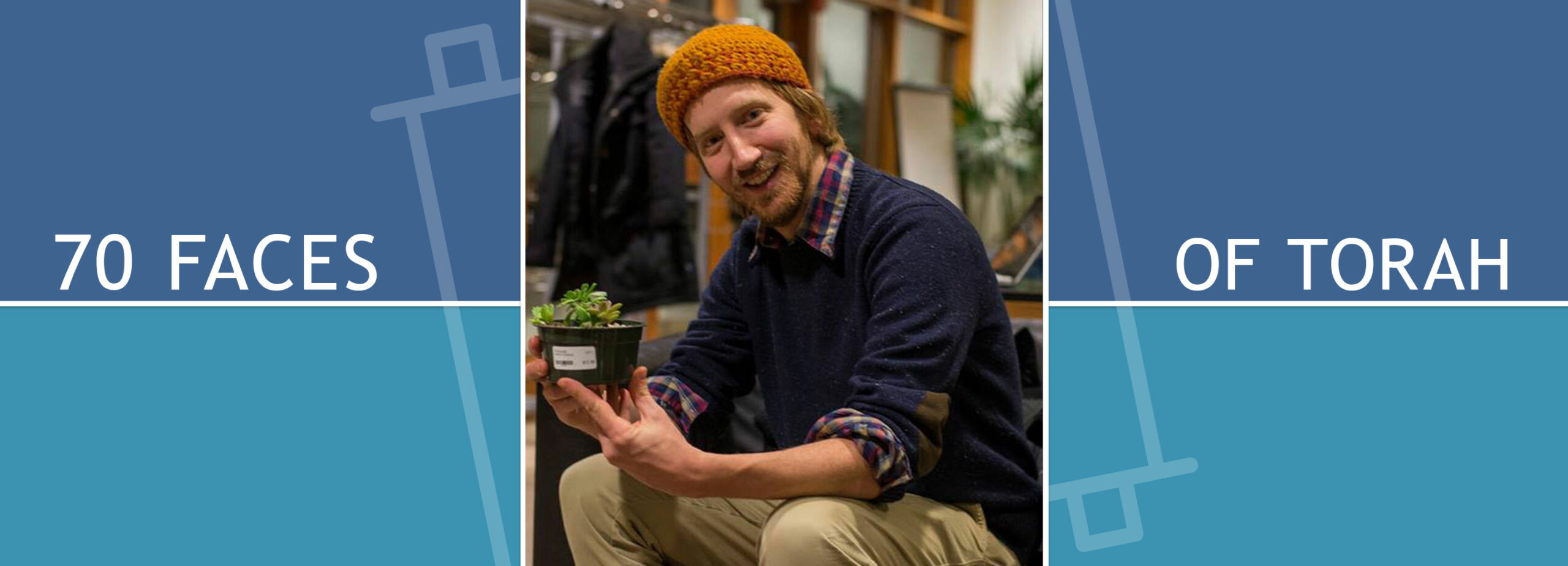Genesis Hallelujah for a Good Night’s Sleep

Parashat Vayetzei (Genesis 28:10–32
I think we can all agree that 2020 has messed with us in ways large and small. One of the most vexing and persistent of the non-catastrophic events of this past year is the change in our sleep patterns. Insomnia, it seems, is just one more symptom of these anxious times. Between COVID and a seemingly- endless election cycle, many of us have found the sweet refuge of sleep a little harder to access.
In a recent article in the New York Times, Nancy Foldvary-Schaefer, the director of the Cleveland Clinic Sleep Disorders Center, was quoted as saying, “A lot of people that I talk to — patients and non-patients and colleagues and family — have more anxiety generally now probably because of these two stressors, and high anxiety is clearly associated with insomnia.”
Just on time, this week’s parashah, Vayetzei, comes along with one of the quintessential Biblical nights of sleep. In the midst of his own high anxiety, Jacob is able to sleep and to dream. It says a lot about the time that we are living in, that this year I feel more focused on the quality of Jacob’s rest than on the particular content of his dream.
The action of this week’s Torah portion begins with Jacob, full of existential fear, fleeing the brother that he has made a lifelong habit of bamboozling. When you combine this very real threat to his life with the fact that he has left his native place and the security of home, you don’t exactly have the ingredients for a sound night’s sleep. Yet, when our trickster forefather comes upon the place and darkness falls, he rests his head on a rock and he sleeps. Deep in his REM cycle, Jacob dreams of a ladder stretching from the heavens to earth with angels ascending and descending. His sleep stretches on and he encounters the Holy One of Blessing who assures him that the covenant established with Abraham and Sara, Isaac and Rebecca, extends to him, as well.
In the morning, he takes his makeshift pillow and turns it into an altar, pouring oil libations on the stone as a way to express his praise for the Divine. For those of us who have struggled recently to get a good night’s sleep, it is not hard to imagine waking up after a restful night full of such gratitude. I might even be convinced to make a pillar of my pillow. “Hallelujah! I slept well!” For me, a full night’s sleep feels like such a gift because it means that I can live my day with more intention and with more attention. Back in our Biblical story, it is, indeed, only when Jacob is well-rested and refreshed that he can fully open his eyes to that which is right before him.
מַה־נּוֹרָ֖א הַמָּק֣וֹם הַזֶּ֑ה אֵ֣ין זֶ֗ה כִּ֚י אִם־בֵּ֣ית אֱלֹהִ֔ים וְזֶ֖ה שַׁ֥עַר הַשָּׁמָֽיִם׃
“How awesome is this place! This is none other than the abode of God, and that is the gateway to heaven.”
So, how did he do it? How, in the midst of such intense tumult and palpable fear, did Jacob close his eyes and sleep?
The sages give one potential answer in the fact that they associate the establishment of the maaariv service with Jacob. In Masechet Brachot, we are taught that each of the three daily services are connected to the avot; Abraham gets the morning service, Isaac takes the afternoon, and Jacob is paired with the evening prayers. The proof text given for Jacob’s relationship to maariv is this exact moment in his story. When Jacob happens upon the place and night falls, the rabbis assert that perhaps Jacob encountered The Place (HaMakom being another name for the Divine). According to this line of thinking, in a moment of deep uncertainty and instability, Jacob finds his voice. He expresses his needs and praises for the Holy One. Perhaps it was this new act of vulnerability, faith and spiritual connection that allows Jacob to sleep and then to dream? Perhaps this is what we need as well?
I am not saying that davvening maariv is the cure for our sleepless nights. But, we might do well to find ways of incorporating connection and encounter into our nightly routine. How might we disconnect for some period of time from the din of the news and a world that is seemingly teetering on the precipice? For some of us, this could be developing a gratitude practice, meditating, finding meaningful verses from the bedtime shema, journaling, or just catching our breath.
Circling back to the story of Jacob’s flight from home this year, we have much to learn about the resilience of his faith and his willingness to try something new in his spiritual life. In these unsteady times, may we, too, be creative in our spiritual practice. May we know sound sleep, and, upon waking, let us open our eyes to the grandeur that fills our world and our lives. We might just find ourselves surprised, exclaiming “How awesome is this place?!”
A new transplant from Boston to Atlanta, Rabbi Jordan Braunig is the Jewish chaplain at Emory University. His work centers on opening doorways for students to meaningful practice, Torah study, and joyful community. Jordan was ordained by Hebrew College in 2014.

